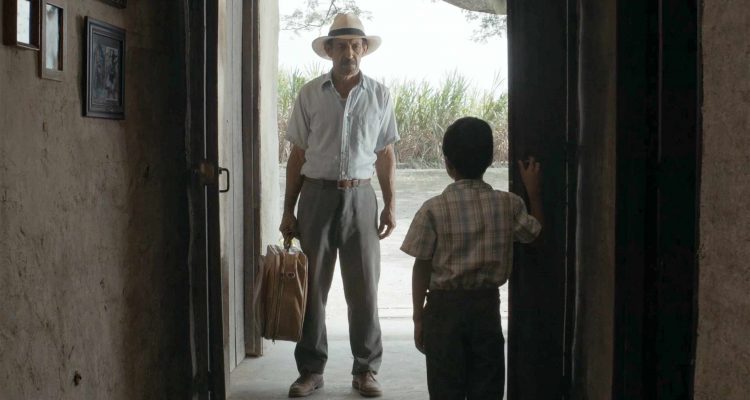Sugarcane farming is painful, arduous work that takes a toll in many ways: on an individuals mind, spirit, and, most significantly body. Yet for large swaths of people living in the cane-rich regions of Central and South America, it is a way of life, even when the pay is inconsistent and the work increasingly competitive. It’s in this locale that first time director César Augusto Acevedo sets his wrenching and contemplative Cannes Camera d’Or winning debut “Land And Shade.”
The 50 Best Foreign Language Films Of The 21st Century So Far
The catalyst of Acevedo’s film is all too familiar to sugarcane farmers: longtime Colombian cane farmer Geraldo (Edison Raigosa) is sick with an unnamed illness lurking in his chest and fueled by the dense pollution of burning stalk. He’s so sick that he has summoned his long-absent father Alfonso (Haimer Leal) to return to the house and farm he has not seen in more than a decade. Geraldo, who is relegated to bed and cannot work, is surrounded by his wife Esperanza (Marleyda Soto), their young son Manuel (Felipe Cárdenas), and his mother, Alfonso’s estranged wife Alicia (Hilda Ruiz).
 From there, the premise is simple: since Geraldo can’t work, Esperanza and Alicia must. From sun’s rise to sundown, their days are spent in the Colombian cane fields. Alfonso, who abandoned his family, must begrudgingly look after both Geraldo and Manuel. The film is a sort of ethereal dreamscape of long, tempered takes and the quiet conversations of a family battling their own resignation to the life and work that is killing Geraldo. Do they stay, thereby observing the desires of the determined and rooted Alicia, who resents Alfonso for leaving, and who now only wants to remain in her home? Or do they pack their things and flee the dangerous ash that rains from the sky?
From there, the premise is simple: since Geraldo can’t work, Esperanza and Alicia must. From sun’s rise to sundown, their days are spent in the Colombian cane fields. Alfonso, who abandoned his family, must begrudgingly look after both Geraldo and Manuel. The film is a sort of ethereal dreamscape of long, tempered takes and the quiet conversations of a family battling their own resignation to the life and work that is killing Geraldo. Do they stay, thereby observing the desires of the determined and rooted Alicia, who resents Alfonso for leaving, and who now only wants to remain in her home? Or do they pack their things and flee the dangerous ash that rains from the sky?
It’s in this listlessness that the film both succeeds and stumbles. Mateo Guzmán‘s cinematography is appropriately striking and scorched; this dusty and ash-covered milieu is captured with aplomb. The family’s house is utterly surrounded by cane fields, the stalks rise high in all directions, insulating the drama and creating a sense of confinement and isolation, and setting the stage for one of the most stunning scenes of the film: their modest house surrounded by a literal ring of fire, leaving the family engulfed in billowing smoke.

But it isn’t long before the languid quality trips up the tempo of “Land And Shade.” Alfonso’s tasks at the house, in addition to being emotionally burdensome, are ultimately rather dull. There is little for him to do. He cleans ash from the house and from the plants in the yard; he builds a bird feeder, teaches Manuel bird calls, buys him a kite —but little else. Each of these tasks is luxuriated in by Acevedo, and each is given the same significance. The notion is that all of these things are equal, that such is the mundanity of this life. Early on, though, this premise falters and the film begin to drag. Especially when the static camera work is made painfully apparent — mostly during a small labor protest where quick cuts from shouting face to shouting face do little to create a sense of energy or outrage. This lack of visual energy, combined with the choice to forgo a score, leaves little to buoy the moments needed to propel the film toward its inevitable close.
But where “Land And Shade” shines is in its outrage, and the heartbroken fury at the center of the film. This is a family stuck inside of a broken system and left with only two options: stay and die doing the only work they can, or flee and give up their home. Of course, there is more layered nuance to their choices, but it’s hard not to see the tragedy of their reality. Acevedo seems to know that letting this struggle simmer beneath the surface is exactly the way to highlight it: to say, This isn’t abnormal. This isn’t unique. This is life. [B-]

